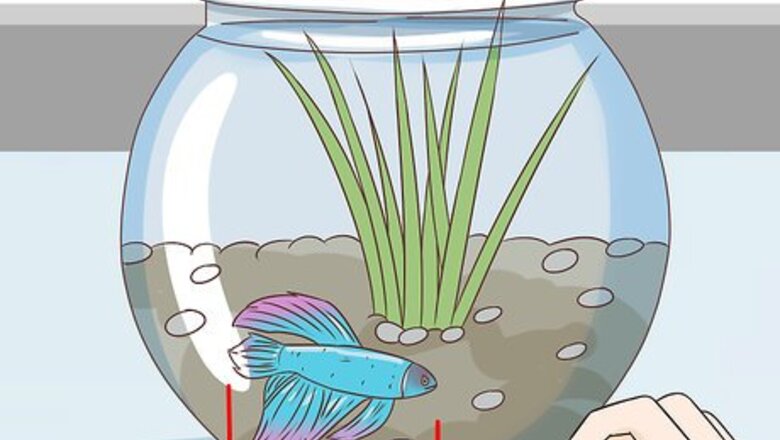
views
Determining Age with Features
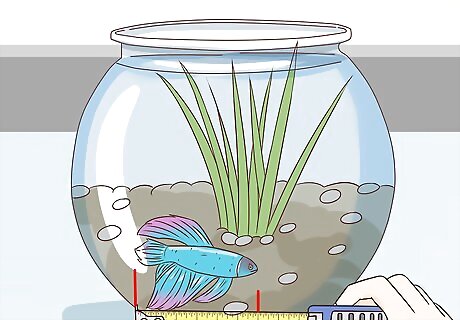
Check your betta's size. Normal adult bettas are usually around 3 inches (7.6 cm) in length. Hold a measuring tape up to your fish's tank and see how long it is. If your betta is less than the average, your betta is most likely a juvenile. It can be hard to measure a betta exactly. In most cases, it will be enough to simply get an estimate by holding up a measuring tape against the glass. Be patient since most healthy bettas do not stay still often.
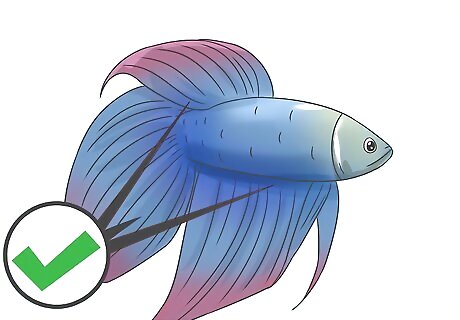
Check your betta's fins. Adult bettas have nice and beautiful flowing fins. If your betta has this characteristic, this is a good sign that it is an adult. If it has tiny fins, then it is either a juvenile or a baby. Older betta's fins have typically undergone lots of wear and tear. They may have tiny tears or shredded ends. Make sure you know the sex of your betta. Female bettas never get long, flowing fins like the males do. Don't confuse normal wear with injuries from diseases. Crowntails naturally have 'torn'- looking fins.
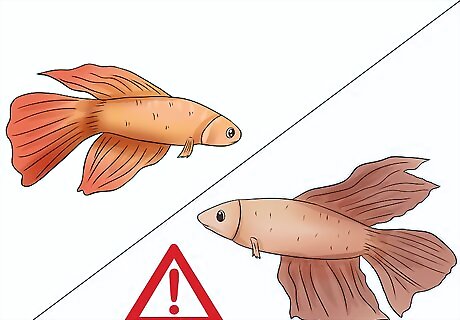
Assess the color of your betta. In general, young bettas are vibrant and middle-aged bettas are slightly faded. The color of the scales of an older betta will be slightly faded and muted. Note: Bettas that are bred for pets come in a wide variety of colors. However, wild betta fish tend to be grey or dull colored, and only show flashes of color when fighting.
Identifying Signs of Aging
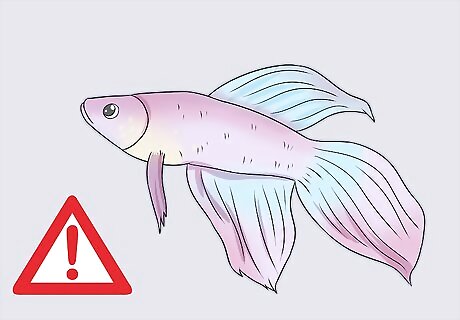
Look for changes in your fish's body. You might notice that with every day, your betta seems to be getting paler or even with daily feeding your fish gets skinnier. These are signs of an aging betta. Tip: As a betta ages, its back may also begin to arch. An old betta's back is usually humped, while a younger betta's back is more straight. The hump is rounded, so don't confuse this for a sharp spinal problem.
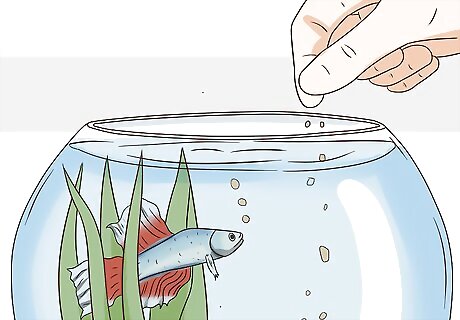
Pay attention to changes in energy. Your betta will flare with much less gusto than it used to when it get old. After so many years, many bettas lose the enthusiasm to flare. Also, while a healthy adult betta will swim around vigorously in its tank, old bettas will hide behind plants and décor and swim sluggishly. When feeding your betta, watch it to see how quickly it spots its food. Old bettas may swim slowly to their food and miss it a couple of times before spotting it.
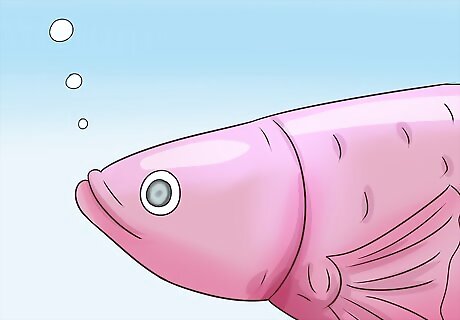
Look for cataracts on the betta's eyes. Old bettas tend to have "cataracts," which are filmy or hazy spots inside the eye. This is normal for old bettas, and will happen no matter how big the tank you have is or how clean you keep the water. Tip: If the fishes' eyes are black and hard to see, that is a sign of a healthy adult betta.




















Comments
0 comment